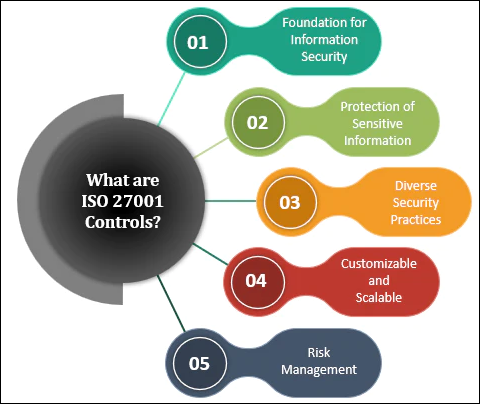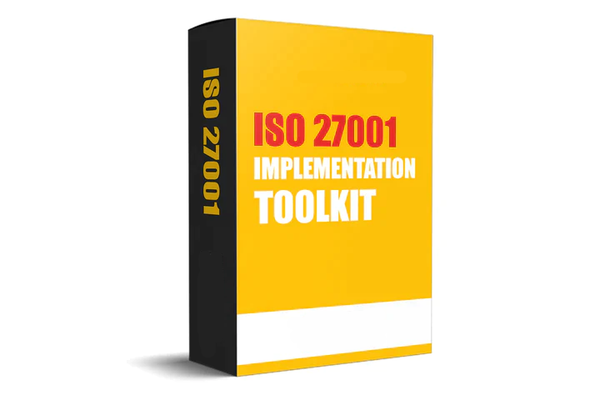What are ISO 27001 Controls?
ISO 27001 controls are a vital component of the internationally recognized Information Security Management System (ISMS) standard, ISO 27001. These controls are a set of safeguards and measures designed to protect sensitive information and ensure the confidentiality, integrity, and availability of data within an organization.ISO 27001 controls encompass a wide range of security practices, from access control and encryption to incident response and risk assessment. Implementing these controls is essential for businesses aiming to safeguard their digital assets and maintain compliance with data protection regulations, making ISO 27001 a crucial framework for modern information security.

Importance of ISO 27001 Controls
- Foundation for Information Security: ISO 27001 controls form the foundation for information security within organizations. They are part of the broader framework established by ISO 27001, which is an internationally recognized standard for Information Security Management Systems (ISMS).
- Protection of Sensitive Information: These controls are a comprehensive set of safeguards and measures put in place to protect sensitive and confidential information. They address various aspects of information security, such as data confidentiality, integrity, and availability.
- Diverse Security Practices: ISO 27001 controls encompass a diverse range of security practices. This includes but is not limited to access control, encryption, physical security measures, network security, incident response, and risk assessment. Each control is designed to address specific security concerns.
- Customizable and Scalable: One of the strengths of ISO 27001 controls is their adaptability. Organizations can tailor these controls to their specific needs and risks. This customization ensures that security measures are both effective and practical for the organization.
- Compliance and Regulatory Alignment: Implementing ISO 27001 controls is crucial for organizations seeking to comply with data protection regulations and demonstrate a commitment to security. ISO 27001 provides a recognized framework for achieving and maintaining compliance.
- Risk Management: ISO 27001 controls are closely tied to risk management. They help organizations identify and mitigate risks associated with their information assets. This proactive approach to risk management is essential for preventing security breaches and data breaches.
- Global Acceptance: ISO 27001 is globally accepted and recognized. Implementing these controls can enhance an organization's reputation and credibility, both domestically and internationally.
- Security Best Practices: ISO 27001 controls are based on internationally recognized best practices in information security. They draw from the collective wisdom of experts in the field, making them a reliable guide for organizations seeking to secure their digital assets.
Conclusion
Implementing ISO 27001 controls not only mitigates risks but also demonstrates a commitment to global information security best practices.


